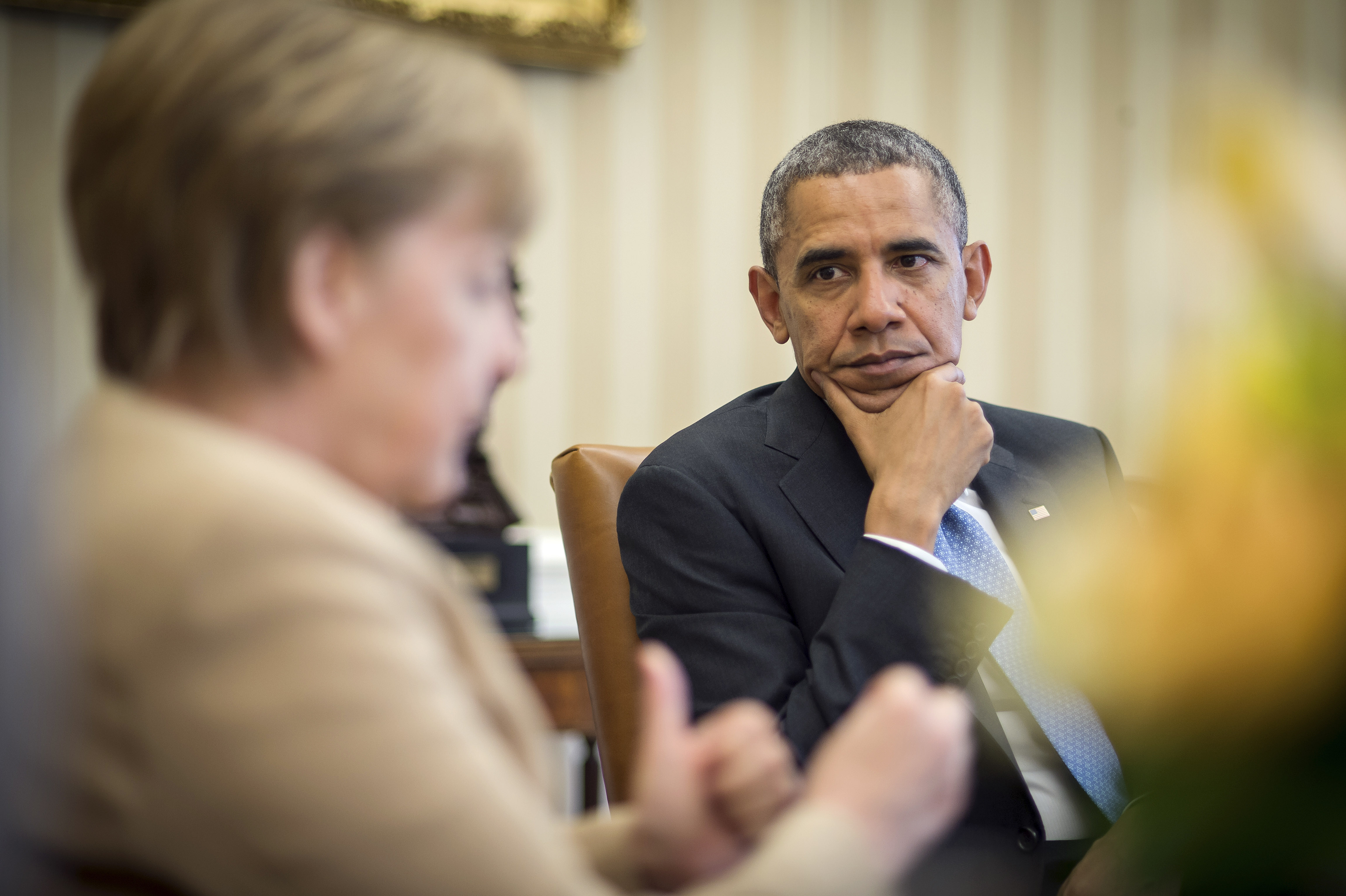It's time for Obama to shake some sense into the Germans about the Greek crisis
Friends don't let friends make disastrous economic decisions


At first blush, the nuclear deal with Iran looks about as good as could be realistically expected. Iran agrees not to develop a nuclear weapon, and submits to intrusive inspections to prove it, for at least the next 15 years. In return, the sanctions regime will be gradually lifted as Iran demonstrates its good faith, and a dangerous pariah state will start to rejoin the community of nations.
This raises a question: If two countries with as much bad blood between them as the United States and Iran can reach common ground over nuclear weapons, why can't Germany and Greece bury the hatchet and patch up the eurozone? Germany was party to the Iran deal, so perhaps it's time for the United States to return the favor and broker some honest negotiations — particularly now that the International Monetary Fund is having doubts about the latest Greek bailout.
Because make no mistake, while the utterly atrocious bargain the eurozone elite rammed down Greece's throat — what Paul Krugman has called "the sack of Athens" — represents a tactical victory for the Germans, it is a terrific long-term blow against the very idea of a united Europe. What was a high example of noble humanist principles and 70 years of progress has instead resurrected the demons of 19th-century nationalism and hatred.
The Week
Escape your echo chamber. Get the facts behind the news, plus analysis from multiple perspectives.

Sign up for The Week's Free Newsletters
From our morning news briefing to a weekly Good News Newsletter, get the best of The Week delivered directly to your inbox.
From our morning news briefing to a weekly Good News Newsletter, get the best of The Week delivered directly to your inbox.
Indeed, as David Dayen points out, the German elite may well be sawing off the economic branch they are sitting on. The euro has greatly benefited German exporters, by reducing the appreciation of their currency. (Though as JW Mason always remarks, German workers have not benefited nearly so much.) If Germany were to go back to the deutsche mark, or even a currency simply shared among the eurozone core, it would likely experience sharp appreciation, blowing up its export-led growth model.
The eurozone elite insists that Greece is a unique case — that without Greece, the eurozone would be free of problems — but given the utterly duplicitous way they handled the situation, there is zero reason to trust them. As Steve Randy Waldman argues, Greece was quarantined as a scapegoat so that systemic eurozone problems — in particular, grossly irresponsible lending on the part of northern European banks — would not have to be addressed. There is every reason to think they'll pull the same trick should one of the other suffering periphery countries, like Spain or Italy, try to escape from the austerity strappado. The long-term crackup of the eurozone, and perhaps the European Union as well, looks like a distinct possibility.
A good ally does not simply backstop a nation in any choice it happens to make. Germany and France rightly did not support the U.S. invasion of Iraq, because it was an objectively atrocious decision. As Robert McNamara, of all people, said in the documentary The Fog of War, "If we can't persuade nations with comparable values of the merit of our cause, we'd better reexamine our reasoning." The flip side of that sentiment is this: Listening to dissenting allies can be of great strategic benefit.
So it's high time for President Obama to start putting some pressure on eurozone elites. In particular, he should deploy Secretary of State John Kerry now that Kerry has some free time on his hands, since his dogged persistence in the Iran talks has proved he's a remarkably effective diplomatic interlocutor.
A free daily email with the biggest news stories of the day – and the best features from TheWeek.com
The U.S. could also start leaning on the IMF, an institution over which the U.S. has great influence. Along with the European Commission and the European Central Bank, the IMF is the reluctant third part of the eurozone leg-breaking troika. On Tuesday, it publicly refused to sign on to the latest Greece deal unless it includes real debt restructuring. This has irritated eurozone elites — they tried to suppress an earlier report that made a similar call — and so U.S. support can help the IMF's position.
But ultimately, this is about trying to talk some sense into both sides. Europe and particularly Germany need to find some way out of the political and economic sandtrap they've walked into. If the European Union can't provide at least a modicum of jobs and prosperity for people on its periphery, then it is eventually doomed — and rightly so.
Ryan Cooper is a national correspondent at TheWeek.com. His work has appeared in the Washington Monthly, The New Republic, and the Washington Post.
-
 Childhood vaccines: RFK Jr. escalates his war
Childhood vaccines: RFK Jr. escalates his warFeature The health secretary cut the number of recommended childhood vaccines from 17 to 11
-
 Jan. 6: Ultimately a success?
Jan. 6: Ultimately a success?Feature The White House website offers a revisionist history of the Jan. 6 coup attempt
-
 Renee Good: A victim of ICE’s dangerous tactics?
Renee Good: A victim of ICE’s dangerous tactics?Feature The 37-year-old mom was killed in Minneapolis, sparking protests around the country
